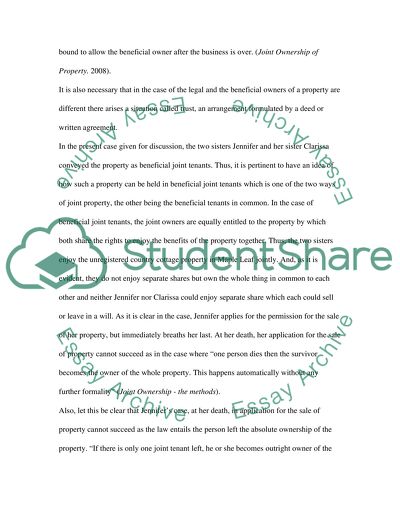Cite this document
(“Land Law Case Study Example | Topics and Well Written Essays - 1500 words”, n.d.)
Retrieved from https://studentshare.org/law/1523446-land-law-case-study
Retrieved from https://studentshare.org/law/1523446-land-law-case-study
(Land Law Case Study Example | Topics and Well Written Essays - 1500 Words)
https://studentshare.org/law/1523446-land-law-case-study.
https://studentshare.org/law/1523446-land-law-case-study.
“Land Law Case Study Example | Topics and Well Written Essays - 1500 Words”, n.d. https://studentshare.org/law/1523446-land-law-case-study.


